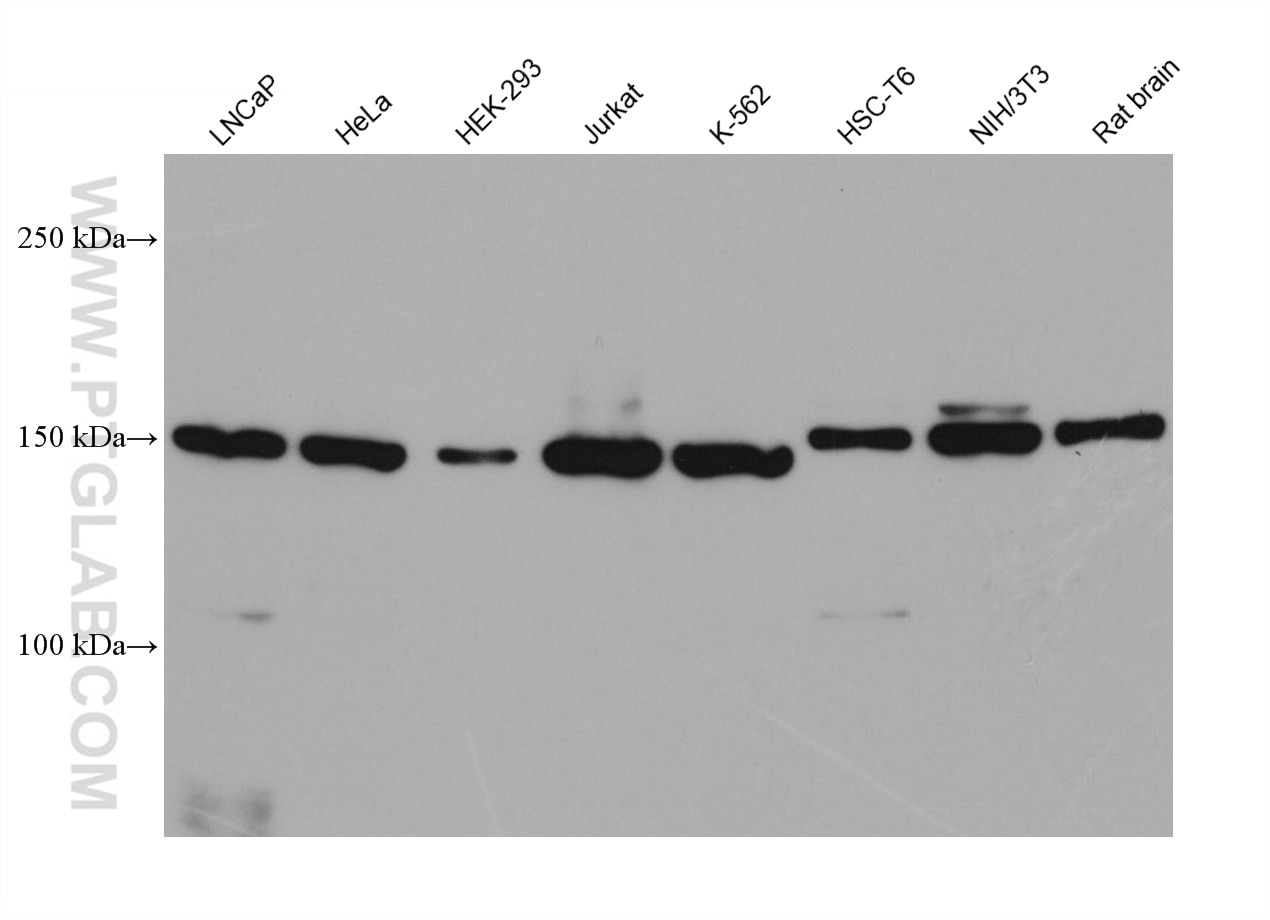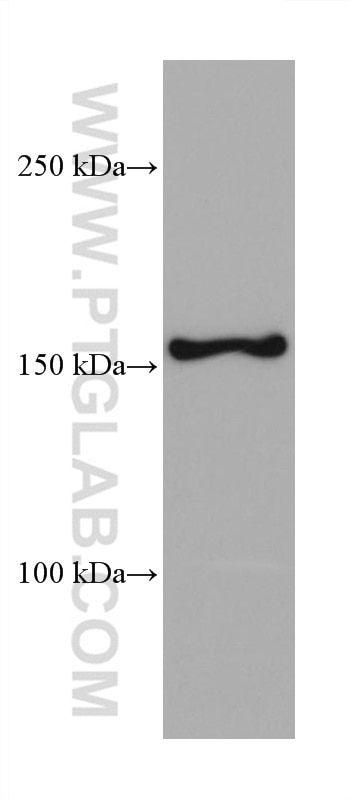RPAP1 Monoklonaler Antikörper
RPAP1 Monoklonal Antikörper für WB, ELISA
Wirt / Isotyp
Maus / IgG1
Getestete Reaktivität
human, Maus, Ratte
Anwendung
WB, ELISA
Konjugation
Unkonjugiert
CloneNo.
2A6H5
Kat-Nr. : 68193-1-Ig
Synonyme
Galerie der Validierungsdaten
Geprüfte Anwendungen
| Erfolgreiche Detektion in WB | LNCaP-Zellen, HEK-293-Zellen, HeLa-Zellen, Jurkat-Zellen, K-562-Zellen, Maushirngewebe, NIH/3T3-Zellen, Rattenhirngewebe |
Empfohlene Verdünnung
| Anwendung | Verdünnung |
|---|---|
| Western Blot (WB) | WB : 1:5000-1:50000 |
| It is recommended that this reagent should be titrated in each testing system to obtain optimal results. | |
| Sample-dependent, check data in validation data gallery | |
Produktinformation
68193-1-Ig bindet in WB, ELISA RPAP1 und zeigt Reaktivität mit human, Maus, Ratten
| Getestete Reaktivität | human, Maus, Ratte |
| Wirt / Isotyp | Maus / IgG1 |
| Klonalität | Monoklonal |
| Typ | Antikörper |
| Immunogen | RPAP1 fusion protein Ag7856 |
| Vollständiger Name | RNA polymerase II associated protein 1 |
| Berechnetes Molekulargewicht | 153 kDa |
| Beobachtetes Molekulargewicht | 153 kDa |
| GenBank-Zugangsnummer | BC000246 |
| Gene symbol | RPAP1 |
| Gene ID (NCBI) | 26015 |
| Konjugation | Unkonjugiert |
| Form | Liquid |
| Reinigungsmethode | Protein-G-Reinigung |
| Lagerungspuffer | PBS mit 0.02% Natriumazid und 50% Glycerin pH 7.3. |
| Lagerungsbedingungen | Bei -20°C lagern. Nach dem Versand ein Jahr lang stabil Aliquotieren ist bei -20oC Lagerung nicht notwendig. 20ul Größen enthalten 0,1% BSA. |
Hintergrundinformationen
RNA polymerase II-associated protein 1 (RPAP1) encodes a nuclear 153-kDa protein, and forms an interface between the RNA polymerase II (RNAPII) enzyme and chaperone/scaffolding protein, suggesting that it is required to connect RNA polymerase II to regulators of protein complex formation. RPAP1 is required for interaction of the RNA polymerase II complex with acetylated histone H3 and the subsequent DNA transcription.
Protokolle
| Produktspezifische Protokolle | |
|---|---|
| WB protocol for RPAP1 antibody 68193-1-Ig | Protokoll herunterladen |
| Standard-Protokolle | |
|---|---|
| Klicken Sie hier, um unsere Standardprotokolle anzuzeigen |



